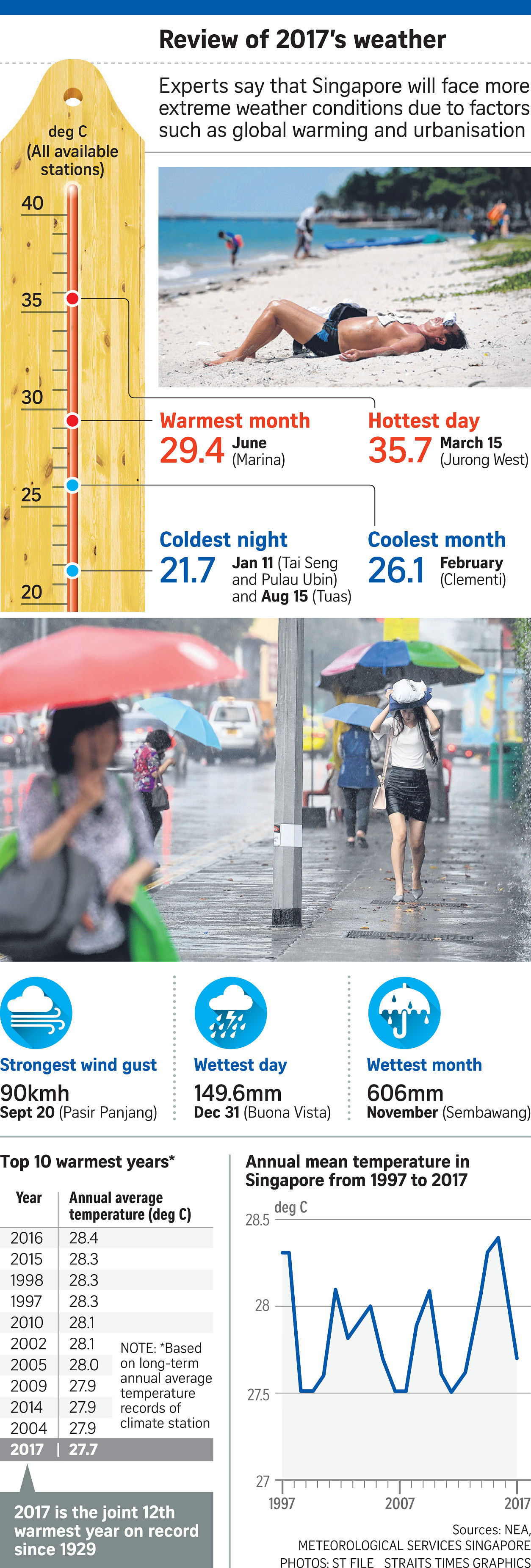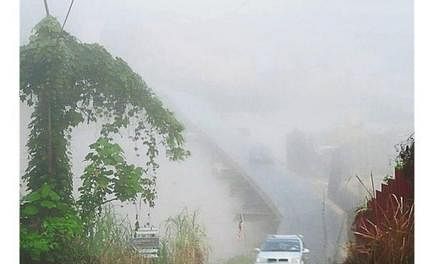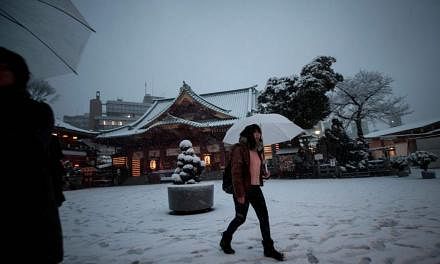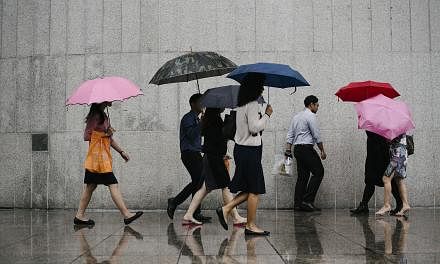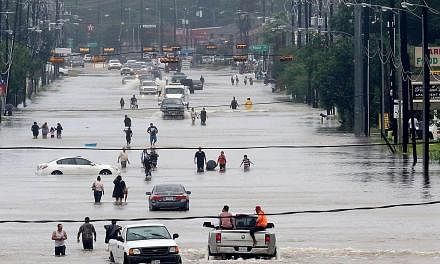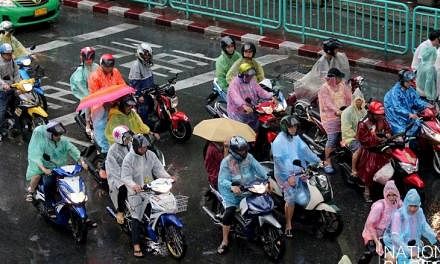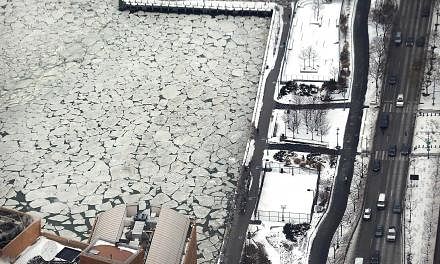Although Singapore had a respite from the heat of El Nino last year, global warming and climate change still left their mark.
It may not have been the hottest year, but there were unusually warm days during 2017, which was also marked by periods of more intense rainfall - just as scientists had been predicting.
El Nino refers to the weather phenomenon that is associated with hotter and drier weather in the region. But El Nino years aside, last year, when the mean annual temperature was 27.7 deg C, was the warmest on record for the country, the Meteorological Services Singapore (MSS) said yesterday in its 2017 weather and climate report.
This was lower than the mean annual temperatures for the two previous years: 28.4 deg C in 2016 and 28.3 deg C in 2015. But both those years were influenced by a strong El Nino event, which was also linked to the worst haze crisis in the region three years ago.
Last year was "the warmest year on record that was not influenced by an El Nino event", said MSS, which has been tracking temperature records since 1929. This was "indicative of the long-term temperature rise that Singapore has been experiencing due to factors such as global warming and urbanisation", it added, pointing out that the average temperature last year was 0.2 deg C warmer than the long-term average.
Experts predict that Singapore will face more extreme weather conditions due to climate change, including rising temperatures, prolonged dry spells and more intense rainfall. MSS' review of last year's weather showed telltale signs of such events.
Very warm days were experienced in Singapore last year despite it not being an El Nino year, with the hottest day experienced on March 15, when a high of 35.7 deg C was recorded in Jurong West. October was also particularly warm, with temperatures soaring to above 35 deg C on some days, MSS noted.
"The normally cool months of January and December also saw warmer than usual temperatures on some days," said MSS.
Heavy rain from intense thunderstorms caused flash floods and fallen trees on numerous occasions last year. Fifteen days of rain were recorded last February. This was almost twice the long-term average for that month, which is usually one of the driest in the year.
Assistant Professor Winston Chow, a weather researcher from the National University of Singapore's geography department, said Singapore's weather last year reflected global trends. Globally, 2017 was also the warmest non-El Nino year on record.
Mr Chris Cheng, who is pursuing a doctorate in climate studies, said Singapore should expect hotter days ahead, after the respite from the current wet season ends.

